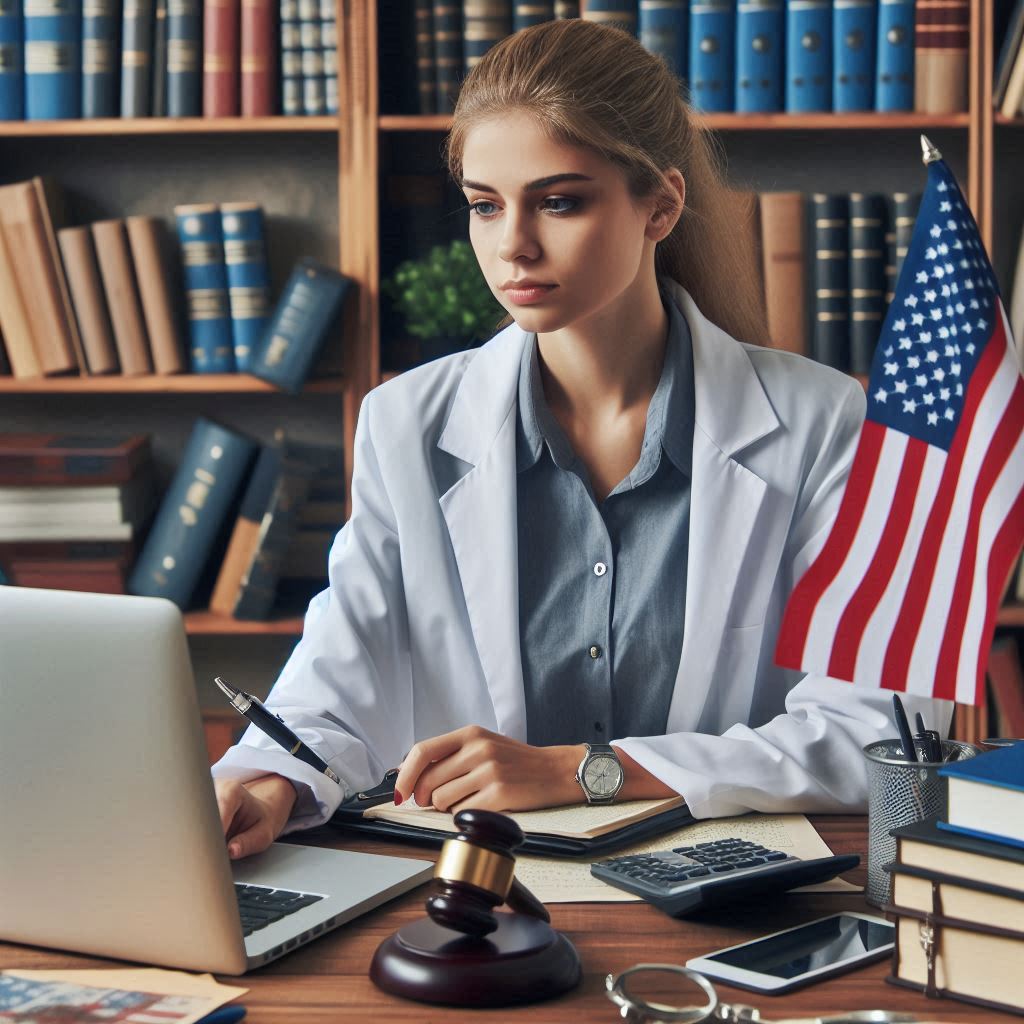Introduction
Jury consultants play a crucial role in trial proceedings. They analyze and influence juror behavior to help lawyers achieve favorable outcomes.
These professionals use psychological principles to understand how jurors think and decide.
Understanding juror behavior is essential in the legal system. Jurors make decisions that can determine the outcome of a trial.
Their reactions, biases, and opinions significantly impact the verdict.
By studying these behaviors, jury consultants can predict how jurors might respond to evidence and arguments.
Jury consultants employ various methods to gather insights. They use mock trials and focus groups to simulate real court scenarios.
This approach helps them observe juror reactions and attitudes. They also analyze demographic data and psychological profiles to assess potential biases.
The importance of understanding juror behavior cannot be overstated. It allows lawyers to tailor their arguments and strategies to better resonate with the jury.
This strategic approach increases the likelihood of a favorable verdict and ensures that the trial process is as fair as possible.
In summary, jury consultants are vital in analyzing and influencing juror behavior.
Their work helps shape trial strategies and improve the chances of success in the legal system.
Understanding how jurors think and react is key to achieving favorable outcomes in court.
What is a jury consultant?
A jury consultant is a professional who provides assistance to attorneys in selecting jurors for a trial.
They analyze juror behavior to predict how they might respond to certain arguments or evidence.
Role and Responsibilities of a Jury Consultant
- Conducting mock trials or focus groups to test case strategies
- Advising on jury selection during the voir dire process
- Providing insights into juror attitudes and biases
- Developing trial themes and messaging to resonate with jurors
- Assisting with witness preparation to enhance credibility
Qualifications and Expertise Required to Work as a Jury Consultant
- Advanced degree in psychology, sociology, or related field
- Strong research and analytical skills
- Understanding of legal principles and trial procedures
- Experience in jury selection or trial consulting
- Excellent communication and interpersonal skills
In fact, jury consultants play a critical role in helping attorneys navigate the complex process of jury selection and trial strategy.
By analyzing juror behavior, developing trial themes, and providing valuable insights, consultants can enhance the likelihood of a successful outcome for their clients.
To excel in this field, individuals must possess a unique set of qualifications, expertise, and skills that enable them to understand and influence juror behavior effectively.
Read: The Importance of Body Language in Jury Selection
Methods used to analyze juror behavior
Different techniques used by jury consultants to assess juror behavior
In the realm of legal proceedings, jury consultants utilize various methods to analyze juror behavior.
These strategies are crucial in providing valuable insights that can be leveraged during trial preparation and jury selection.
Transform Your Career Today
Unlock a personalized career strategy that drives real results. Get tailored advice and a roadmap designed just for you.
Start NowSurveys and questionnaires
- Surveying potential jurors helps consultants understand their beliefs, biases, and attitudes towards specific issues.
- Questionnaires are designed to gather demographic information and assess jurors’ predispositions that may impact their decision-making process.
Jury profiling:
- Jury consultants employ profiling techniques to categorize jurors based on characteristics such as age, occupation, and past experiences.
- This enables consultants to predict how different juror profiles may interpret and respond to the presented evidence.
Behavioral observation
- Consultants closely observe juror behavior during trial proceedings to gauge their reactions to testimonies and arguments presented by both sides.
- By identifying nonverbal cues and expressions, consultants can assess jurors’ engagement and skepticism towards the case.
Social media analysis
- With the prevalence of social media, consultants analyze jurors’ online presence to uncover potential biases or insights into their personalities.
- This information can provide a deeper understanding of juror attitudes towards specific legal issues or parties involved in the case.
Importance of conducting mock trials and focus groups
Mock trials and focus groups serve as invaluable tools for jury consultants to gather insights into juror behavior and attitudes.
These simulated scenarios provide a glimpse into how potential jurors may react to evidence and arguments presented during the actual trial.
- Mock trials allow consultants to test case strategies, witness credibility, and juror perceptions in a controlled environment.
- By replicating the trial experience, consultants can observe juror deliberations and identify potential strengths and weaknesses of their case.
- Focus groups bring together a diverse set of individuals to discuss and evaluate key aspects of the case, providing consultants with valuable feedback on juror perceptions.
- Through group discussions and feedback sessions, consultants can uncover underlying biases, concerns, and attitudes that may impact juror decision-making.
Overall, the methods employed by jury consultants to analyze juror behavior play a critical role in shaping trial strategies and enhancing the chances of a favorable outcome for their clients.
Read: Civil Rights Advocacy: Legal Resources and Tools
Understanding demographics and biases
When it comes to understanding juror behavior, jury consultants play a crucial role in analyzing demographics and biases to predict how jurors may react during a trial.
Examining Demographic Data
Jury consultants carefully examine demographic data to gain insights into the backgrounds, beliefs, and experiences of potential jurors.
By looking at factors such as age, gender, education, occupation, and socioeconomic status, consultants can start to build a profile of how a juror may perceive the case at hand.
For example, consultants may consider how a juror’s profession could influence their views on a business-related trial.
A juror with a finance background might approach the case differently than someone with no financial experience.
Furthermore, consultants analyze geographic data to understand regional biases that may impact juror decision-making.
For instance, jurors from urban areas might have different perspectives compared to those from rural communities due to varying cultural norms and values.
Impact of Biases and Prejudices
Biases and prejudices can significantly influence juror decision-making and ultimately affect the outcome of a trial.
Jury consultants work to identify and address these biases to ensure a fair and impartial jury selection process.
One common bias that consultants look out for is confirmation bias, where jurors seek information that aligns with their preexisting beliefs and disregard conflicting evidence.
By recognizing this bias, consultants can develop strategies to present evidence effectively and challenge jurors to consider alternative viewpoints.
Racial biases also play a critical role in juror behavior. Studies have shown that jurors may exhibit implicit biases based on race, which can impact their perceptions of a defendant’s guilt or innocence.
Consultants take steps to mitigate these biases through jury selection techniques and jury instructions.
Moreover, consultants consider cognitive biases such as anchoring bias, where jurors fixate on initial information presented to them and struggle to adjust their views.
By understanding these cognitive tendencies, consultants can tailor their trial strategies to address potential biases and ensure a more balanced decision-making process.
In short, jury consultants play a vital role in analyzing demographic data and addressing biases to predict and influence juror behavior.
Transform Your Career Today
Unlock a personalized career strategy that drives real results. Get tailored advice and a roadmap designed just for you.
Start NowBy understanding these factors, consultants can assist legal teams in building stronger cases and achieving fair trial outcomes.
Read: Common Misconceptions About Jury Consultants

Behavioral psychology in jury analysis
When it comes to analyzing juror behavior, jury consultants often rely on behavioral psychology as a key tool.
Let’s delve into how psychological theories influence this analysis and how cognitive biases and heuristics play a role in juror decision-making.
Behavioral psychology is a branch of psychology that focuses on how behaviors are learned and reinforced through interactions with the environment.
In the context of jury analysis, behavioral psychology offers insights into why jurors may exhibit certain behaviors during a trial.
Influence of Psychological Theories on Juror Behavior
- Psychoanalytic Theory: Sigmund Freud’s theory suggests that jurors’ unconscious desires and past experiences can influence their behavior in the courtroom.
- Behavioral Theory: B.F. Skinner’s theory emphasizes how jurors’ behaviors are influenced by rewards and punishments during the trial.
- Cognitive Theory: Cognitive psychologists study how jurors process information, make decisions, and solve problems during a trial.
By considering these psychological theories, jury consultants can gain a better understanding of the factors that drive juror behavior and decision-making.
The Impact of Cognitive Biases and Heuristics on Juror Decision-Making
Cognitive biases are systematic patterns of deviation from rationality in judgment, whereas heuristics are mental shortcuts that individuals use to make decisions quickly.
Both cognitive biases and heuristics can greatly influence juror decision-making in a trial.
- Confirmation Bias: Jurors tend to seek out information that confirms their existing beliefs or opinions, leading to biased decision-making.
- Availability Heuristic: Jurors may rely on information that is readily available in their memory when making decisions, even if it is not the most accurate or relevant.
- Anchoring Bias: Jurors may give disproportionate weight to the first piece of information they encounter during the trial, influencing subsequent decisions.
- Representativeness Heuristic: Jurors may make assumptions about the likelihood of an event based on how closely it resembles a stereotype or prototype in their minds.
By being aware of these cognitive biases and heuristics, jury consultants can anticipate how jurors may interpret evidence and arguments presented in court, allowing them to strategize more effectively.
Behavioral psychology plays a crucial role in analyzing juror behavior, as it provides valuable insights into the underlying factors that drive decision-making.
By considering psychological theories and understanding the impact of cognitive biases and heuristics, jury consultants can better navigate the complexities of the courtroom and improve their strategies for selecting and persuading jurors.
Read: Effective Communication for Civil Rights Lawyers
Case-specific analysis
How jury consultants tailor their analysis to the specific details of a case
Case-specific analysis involves delving into the unique aspects of a particular case to determine the best strategies for selecting jurors and presenting arguments.
Jury consultants recognize that each case is different, requiring a thoughtful and nuanced approach tailored to the specific circumstances.
Importance of considering case facts, evidence, and witness credibility in juror analysis
Consideration of case facts is essential in juror analysis as it provides insight into how jurors might interpret the information presented to them.
Consultants analyze the details of the case to anticipate potential biases or preconceived notions that jurors may bring to the courtroom.
Evaluating the credibility of witnesses is another crucial aspect of case-specific analysis.
Consultants assess the reliability and believability of each witness to determine how their testimonies might influence jurors’ perceptions of the case.
Witness credibility can significantly impact juror decision-making and the overall outcome of the trial.
Transform Your Career Today
Unlock a personalized career strategy that drives real results. Get tailored advice and a roadmap designed just for you.
Start NowBy taking into account the unique details of a case, jury consultants can develop comprehensive strategies for jury selection, witness preparation, and presentation of evidence.
Case-specific analysis enables consultants to identify key issues and tailor their approach to maximize the chances of a favorable outcome for their clients.
Selecting a jury pool
When selecting potential jurors for a trial, jury consultants carefully review the pool of individuals summoned for jury duty.
Consultants analyze the demographics, backgrounds, and characteristics of each potential juror to determine their potential biases.
Criteria such as age, gender, occupation, education level, and past experiences are considered when evaluating the jury pool.
Consultants look for jurors who exhibit qualities that align with the client’s case, such as empathy, open-mindedness, and critical thinking skills.
They also assess jurors’ attitudes towards the legal system, law enforcement, and any relevant issues that may arise during the trial.
Process of selecting potential jurors
Jury consultants work closely with attorneys to develop a strategy for selecting jurors that will benefit the client’s case.
They utilize various research methods, including surveys and focus groups, to gather information about potential jurors.
Consultants create profiles of each potential juror based on their responses to questionnaires and interviews conducted during jury selection.
By comparing these profiles to the desired criteria, consultants can identify jurors who are likely to be sympathetic to the client’s position.
Final selections are made based on a combination of statistical analysis and intuition to ensure the best possible outcome for the client.
Criteria used to identify favorable jurors
Jurors who have similar life experiences or values to the client are often seen as favorable candidates by jury consultants.
Those who exhibit a willingness to consider both sides of an argument and make impartial decisions are highly valued in the jury pool.
Consultants also look for jurors who are assertive, confident, and capable of influencing their peers during deliberations.
Individuals with strong communication skills, empathy, and an ability to connect with others are frequently chosen as potential jurors.
Ultimately, the goal is to select a jury pool that is receptive to the client’s arguments and can be swayed in their favor.
Developing trial strategies
How jury consultants use their analysis to develop effective trial strategies
Jury consultants use detailed analysis to craft effective trial strategies. They begin by examining juror demographics and behavior patterns.
Consultants identify biases, preferences, and potential juror reactions based on these observations.
This information helps attorneys tailor their arguments to resonate with jurors.
Transform Your Career Today
Unlock a personalized career strategy that drives real results. Get tailored advice and a roadmap designed just for you.
Start NowConsultants also use mock trials and focus groups to simulate potential juror responses.
By analyzing these simulations, they refine trial strategies to address juror concerns and biases.
They may recommend specific tactics for opening statements, evidence presentation, and witness questioning.
This approach increases the likelihood of persuading jurors and securing favorable verdicts.
Importance of presenting information in a way that resonates with the jury
Presenting information in a way that resonates with the jury is crucial for trial success.
Jury consultants emphasize the need to communicate complex legal concepts clearly and persuasively.
They advise attorneys on how to frame arguments in a way that aligns with juror values and interests.
Effective presentation involves simplifying complex information and using relatable examples.
Visual aids and storytelling techniques can enhance comprehension and engagement.
Consultants also stress the importance of addressing juror concerns and biases directly.
By aligning the presentation with juror perspectives, attorneys can build stronger connections and influence verdict outcomes.
This strategic communication helps ensure that the jury remains focused and receptive throughout the trial.
In summary, jury consultants play a vital role in developing trial strategies by analyzing juror behavior and advising on effective information presentation.
Their insights help attorneys create compelling arguments and improve their chances of a successful trial outcome.
Conclusion
Jury consultants play a vital role in the legal system by utilizing their expertise in analyzing juror behavior.
They gather data, conduct mock trials, and use various techniques to predict how jurors may respond to evidence and arguments presented in court.
By understanding juror biases, personality traits, and communication styles, jury consultants can help attorneys strategize their case presentations effectively.
This leads to a more informed jury selection process and ultimately increases the chances of a favorable outcome for their clients.
Overall, the significance of jury consultants cannot be overstated in the realm of litigation.
Their insights and analyses provide invaluable assistance to legal teams in navigating the complexities of human behavior and ensuring a fair trial for all parties involved.
Transform Your Career Today
Unlock a personalized career strategy that drives real results. Get tailored advice and a roadmap designed just for you.
Start Now



